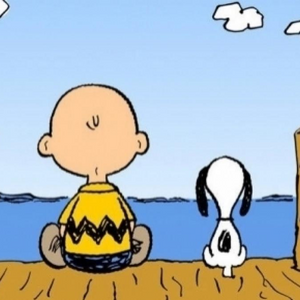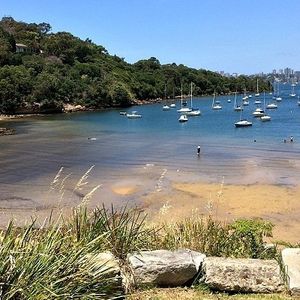Learning in the Great Outdoors
Reflecting on my own childhood and adolescence, I can identify how my school camps, engagement with the Duke of Edinburgh Scheme, and leadership in the King’s School Cadet Corp have all positively shaped who I am today.
On my Year 6 King’s Colo River Camp, I somehow managed to drop my portion of diced meat (intended for an open fire cooked stew) in the dirt. On approaching the teachers to secure some more meat, I was told to solve the dilemma myself - a clear lesson in resilience and problem-solving. As a platoon leader in the King’s cadet corps, I led a group of 24 Year 9-11 students in the bush for over a week, managing logistics, and my platoon’s physical and emotional wellbeing - a clear lesson in, among other things, patience!
School camps and outdoor education in general are essential for healthy development, especially in children’s early years. Being energetic outside provides children with invaluable experiences that can directly influence their physical and emotional development, social skills, creativity and even their intelligences (Structural Learning 2022).
Such experiences can be instrumental in nurturing:
- communication and teamwork skills
- resilience and perseverance
- critical and creative thinking, and initiative
- self-confidence and relationship building skills
- leadership and goal setting skills
- independence, responsibility, and personal autonomy
- an understanding of environmental science and sustainability
Camps also provide a digital detox, and opportunities for rapport building between students and teachers, which can further develop mutual respect and positively impact the learning environment back at school.
In his recent book, ‘The Anxious Generation’, Jonathan Haidt highlights the importance of outdoor play in childhood development, suggesting that a decline in play (due to computer technology and protective parenting) has contributed to rising anxiety among younger generations. Haidt argues that outdoor play is essential for children to develop resilience, social skills, and the ability to handle challenges.
Mosman Prep has always valued adventure in the outdoors. We are committed to going above and beyond in providing boys with challenging outdoor pursuits, with the aim of stretching them and taking them out of their comfort zone, so they return even better versions of themselves in character, confidence, connection, skill, and wisdom.
Numerous studies have shown that outdoor education has a positive impact on student wellbeing, as it provides students with a break from the stressors of everyday life and from technology use. Being in nature has a calming effect on the mind and body and can reduce stress, anxiety, and depression.
Several studies have also clearly established increased school performance through outdoor education. Research has documented improved standardised test scores, enhanced attitude about school, improved in-school behaviour, improved attendance and overall enhanced student achievement when students learn in and about nature. In addition, outdoor education effectively employs a greater range of children’s intelligences.
Our boys are blessed with the opportunities provided to them through our outdoor education program, and the outstanding commitment of the Mosman Prep Teachers, who are second to none in their positive engagement with the boys on these camps, to ensure they receive the maximum benefit possible. Thank you especially to Mr Brendan Frost (Deputy of Student Opportunities and School Operations) for his meticulous work in organisation of our camps program.
Mosman Prep Outdoor Adventures
Year 3 and 4 Crusader Camp - Lake Macquarie (3 days)
Bushwalking, wide games, archery, group challenges and initiative activities, orienteering, sailing, rafting, canoeing, navigation, low ropes, reptile show, bush cooking, catapults, and Christian discovery.
Year 5 Coffs Harbour Adventure (5 days)
Adventure course, surfing, canoeing, Aboriginal preschool visit, and cultural tour with local indigenous students participating. The students raise money to buy books, sporting gear, and other resources for an Aboriginal preschool in the area.
Apart from being a great deal of fun, the trip has the aim of developing: community amongst the Year 5 team; powerful life skills, values and attitudes in students; positive connections with an Aboriginal community (Gumbaynggirr) and heritage; and an awareness of the Coffs Harbour environment.
Year 6 Camp Koloona - AYD Shoalhaven Conference Centre (5 days)
Abseiling, initiative activities, billy cart building, archery, “2 day Pack & Paddle” - 10-15km hike, 10-13km canoe, tent camp out, jetty jumping, Christian discovery, and a day trip to Jamberoo.
Year 6 Red Centre (6 days)
Aboriginal desert cultural walk, exploring the MacDonnell Ranges including Stanley Chasm and Simpsons Gap, a didgeridoo and clap sticks workshop, exploring Watarrka National Park, Kings Canyon Rim walk, Kata Tjuta and Uluru on a truly unique tent camping adventure.
Japan (10 days / every 3rd year)
Year 6 boys and many family members experience a very special tour of Japan, including experiencing the people, culture, and landmarks in Tokyo, Hiroshima, Kyoto, and Osaka. Our boys also have the privilege of playing football and rugby against Japanese teams.
Outdoor education is much more than simply learning outdoor skills, it is about developing social skills and other life skills, such as teamwork, leadership, problem-solving, and communication. It can strengthen a student’s sense of community and belonging, which is critical for overall wellbeing and academic development. By providing a change of environment and a unique set of challenges, camps foster holistic development.
‘Be strong and courageous. Do not be afraid or terrified, for the LORD your God goes with you; he will never leave you nor forsake you.’ Deuteronomy 31:6
Peter Grimes | Headmaster
References:
The Importance of Outdoor Learning - What are the benefits of outdoor learning for primary school children? - Dr Kumaree Padayichie - Structural Learning (2022)
The Benefits of Outdoor Education on Student Wellbeing - Beyond the Classroom - Skills for Life (2024)











